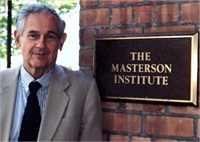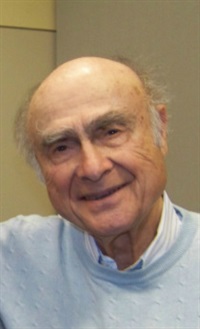EP05 Point/Counterpoint 13 - Integration of Object Relations Theory with Attachment Theory and Neurobiological Development of the Self - James Masterson, MD
- Average Rating:
- Not yet rated
- Topic Areas:
- Point/Counterpoint Sessions | Neurobiology | Object Relations Theory | Psychotherapy | Attachment | History of Psychotherapy
- Categories:
- Evolution of Psychotherapy | Evolution of Psychotherapy 2005
- Faculty:
- James F. Masterson, MD | Erving Polster, PhD
- Duration:
- 1 Hour 18 Minutes
- Format:
- Audio Only
- Original Program Date:
- Dec 10, 2005
- License:
- Never Expires.
Description
Description:
This talk first briefly reviews the history of the Developmental, Self and Object Relations theoretical approach to the personality disorders as a preface to exploring the latest additions to the theory, i.e., Attachment Theory and Neurobiological Development of the Self in the Right Brain. Attachment Theory: The work of Ainsworth and others is described leading to the attachment categories in the infant and the adult. Many follow-up studies are presented validating the persistence of the categories over time. Neurobiologic Development of the Self in the Right Brain: The work of Alan Schore, Ph.D. is used to describe the development of the self in the right prefrontal cortex of the brain. Integration: The integration of the two theories with the object relations approach are described and illustrated through therapeutic alliance and transference acting-out, and transference and countertransference. ·
Educational Objectives:
- To describe attachment theory within the context of the psychotherapy of personality disorders.
- To describe neurobiological development of the self in the right brain within the context of the psychotherapy of personality disorders.
*Sessions may be edited for content and to preserve confidentiality*
Credits
Faculty

James F. Masterson, MD Related Seminars and Products
James F. Masterson (M.D., Jefferson Medical School, 1951) was Director of the Masterson Group, P.C., which specializes in the treatment of adolescent and adult character disorders. Additionally, he was Director of the Masterson Institute (formerly Character Disorder Foundation); attending psychiatrist at New York Hospital, Payne Whitney Clinic; and Adjunct Clinical Professor of Psychiatry at Cornell University Medical College. Masterson has authored seven books and edited two volumes, mostly on the topic of psychoanalytic approaches to character disoreders and adolescents. His seminal work on the borderline personality has made him one of the most influential and studied practitioners of modern psychoanalytic methods.

Erving Polster, PhD Related Seminars and Products
Erving Polster, Ph.D in clinical psychology, is the Director of The Gestalt Institute of San Diego, and the author of several important books, including Gestalt Therapy Integrated, Every Person's Life is Worth a Novel, and From the Radical Center: The Heart of Gestalt Therapy, as well as dozens of articles and chapters. Erving has authored 6 books. In his current writings, he offers perspectives and designs for a communal application of psychotherapy principles. He also describes and celebrates a powerful contemporary momentum for people-at-large to join together in the search for personal and social enlightenment.


